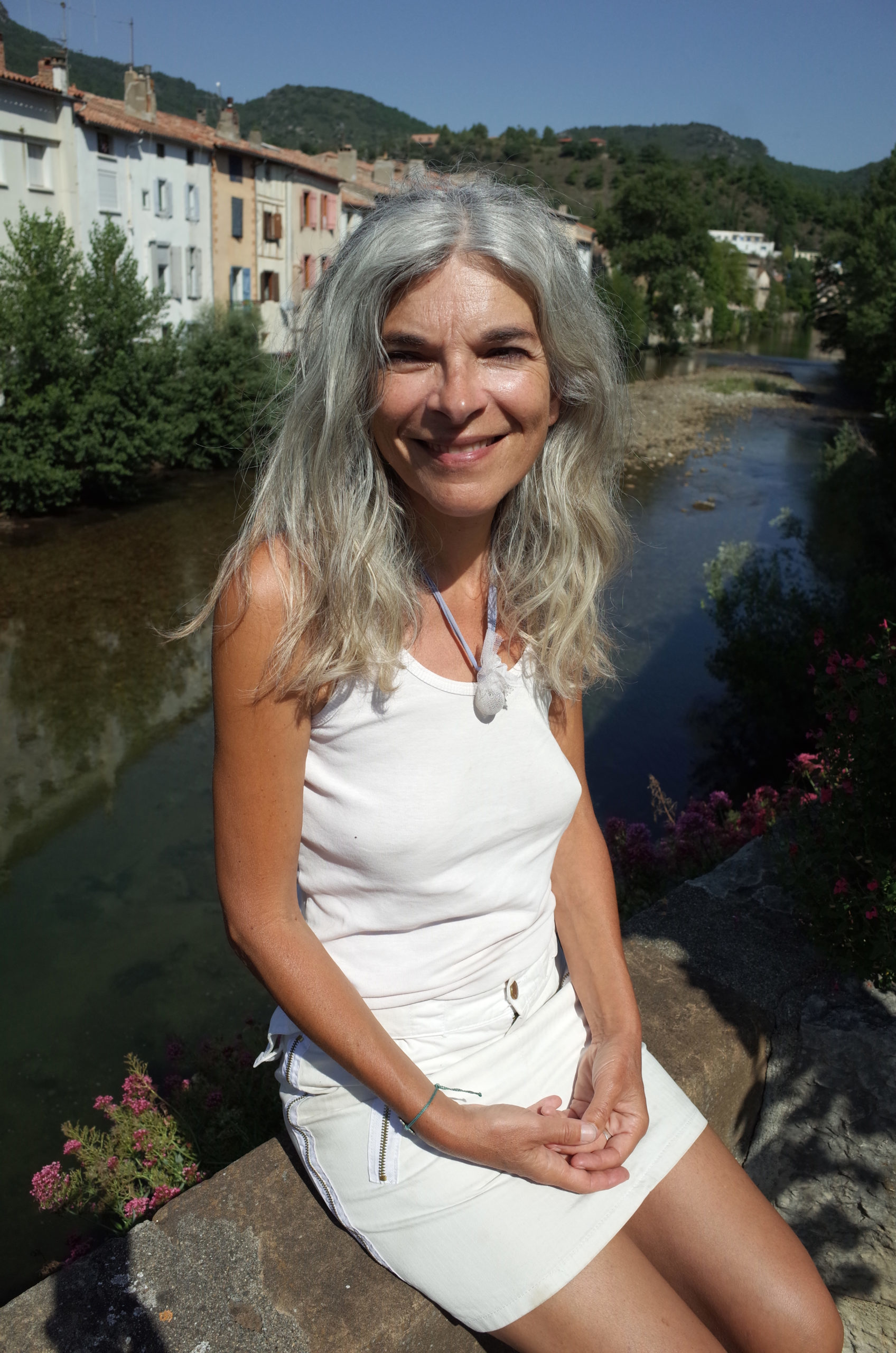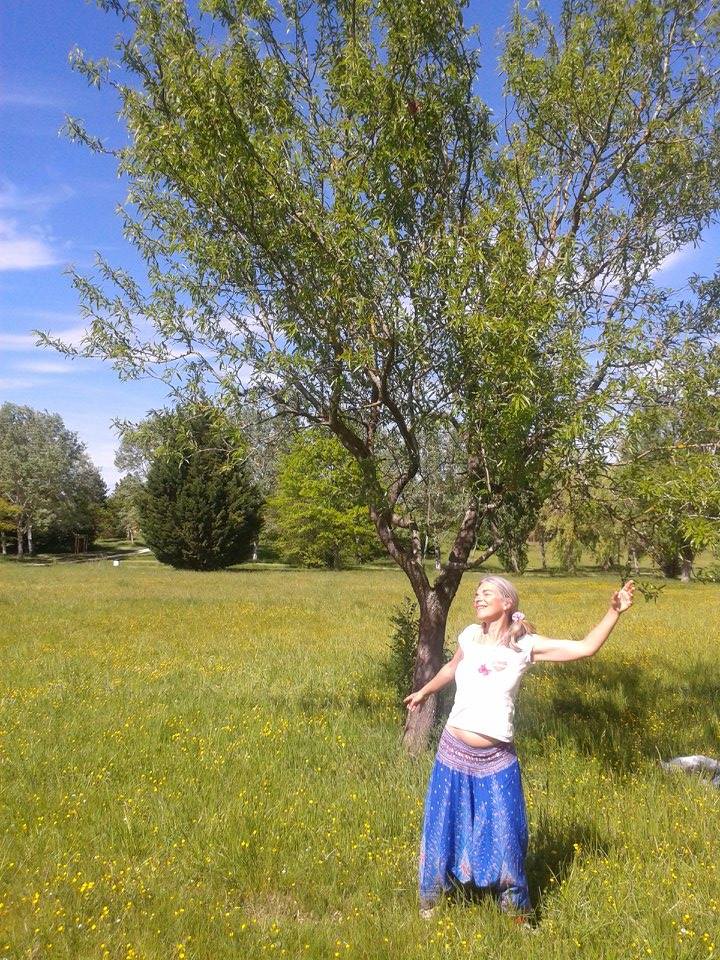Who am I and why Alegria Vida ?
LAURENCE DAVID
“Alegria Vida” means “a life full of joy” in Spanish or Brazilian. This is the life direction I started to take when I discovered biodanza®, and six months later I went to meet its roots in Latin America.
It is also the name of the association I created in 2009, whose official purpose is to “promote, disseminate, organise, create and animate cultural and personal development activities linked to stress management and the reinforcement of vitality and creativity, in particular through artistic techniques and bodily relaxation, for all audiences, including those in difficulty”.
I discovered biodanza® through my former job as a journalist. It was through one of my investigations into stress management and personal development methods, and thanks to my friend Isabelle Gröneman, a stress management trainer and expert in relational creativity, that I met another Isabelle, Jacob, creator of a centre dedicated to creativity training, and discovered biodanza. The session was on the theme of freedom…
It was in 2005 but I remember it as if it were yesterday, imprinted in my eyes, in my heart, and in every cell of my body. I remember the smiles, the warmth of the welcome in this group, and a “horse dance” where, with my mane blowing in the wind and bare hooves bouncing on the floor of a hall in the rue St Maur, I felt for the first time in a long time, the wind of freedom…! No stress of “performance”, of a technique to be mastered, of a more or less complicated choreography to be remembered. The impression of “breathing”, finally. To dance in a class, for pleasure and in contact with others. I saw the light shining brightly in the eyes of each of the participants at the end of the session, the bananas on their lips, and then tasted the warmth of the lentil soup shared at the Kurdish place across the street, a family and relaxed atmosphere. So this existed in Paris?
A feeling of freedom and human warmth, of affectivity, could therefore co-exist in peace? Hallelujah! In an enthusiastic certainty, I decided on the spot, at the end of the first session, that one day I would be a biodanza facilitator and that I would see all these smiles, all this well-being, this relaxation on the faces of the people who came to dance with me! I felt deeply that it would be fulfilling.
My article was not published – censored mainly on the emotional and health aspect of biodanza. But it was thanks to this that I finally decided to take a sabbatical – a decision I had been putting off for some time, to take stock. I had already lost the joy of my job for one or two years, I was suffering from deadline stress, a lack of direct contact with people and a lack of freedom in my creativity. Six months in Latin America, three of them in Brazil, the rest in Chile and Argentina, where I was able to meet biodanza facilitators, do workshops and, above all, get back in touch with nature and my own inner garden, allowed me to cut the ties with my old life and lay the foundations for my present… and my future.
Getting back in touch with the best of myself, my own identity and the creativity that goes with it, the permanent evolutionary path of biodanza, was not without difficulties. Without periods of anger or discouragement, without chaos. But gradually, my light was reborn, and grew with the encouragement of my “Monday group” at Isabelle’s house. Having lost my old reference points, I gradually rediscovered my own passions, left fallow: starting with dance! Free at last! I had always danced, and created choreographies, for myself and also, trying to show them, in the summer, in the attic of my grandmother’s farm, in the countryside. I had been doing contemporary dance for 10 years (from 5 to 15) but my lack of flexibility at the time – I couldn’t make the big splits – didn’t earn me the encouragement of my teachers, nor my parents. I concluded that I didn’t have much talent for dancing… Nevertheless, I continued to dance, and after salsa and African dance, I discovered samba, three years before biodanza.

I also rediscovered my taste for singing and, above all, dared to perform in public again. First at school and then in a duo with a guitarist and singer friend, Mitch. After being traumatised by my mother’s criticism, and a somewhat “forced” experience of the public with a classical singing teacher.
And then… I discovered that I could also write something other than articles or plays. That I liked poetry. To read and write it.
And then… I finally dared to undertake a massage training course to consolidate and validate what I was already doing privately – and even with my journalist colleagues, during lunch breaks! And then, at the same time, came the desire to develop workshops around sensory awakening, the refinement of perceptions, always with the objective of relaxation, of a feeling of plenitude prior to true creativity and not “reactivity”…
And then…as I was completing my third and final year of biodanza training for adults at the Burgundy School, I dared to express – not having any children myself yet – the deep desire to be in contact, to work with children. And to be able to create links not only between ‘culturally’ different people, but also between generations. This is why I propose to do biodanza ‘as a family’. By going beyond the “parents-children” bubble and extending the concept to the African village, to the extended family, to cousins, friends, godmothers, etc., and without barriers, to be able to welcome the elderly, and/or people with disabilities. I hope very much to develop this theme of these because it is very close to my heart: biodanza is made for this, it helps us to feel how we are all connected and to facilitate communication, whatever our limitations. It helps us to feel how we are all connected and to facilitate communication, whatever our limits. To re-establish contact by acquiring more “tact”, sensitivity to the other, a capacity for empathy, more benevolence and respect.
By evolving towards the best of ourselves, towards the liberation of our creative impulse, by getting back in touch with our deep and universal feelings, we can welcome all differences, whatever they may be – cultural, social, generational, physical…etc. Learning to welcome the Other, the fellow human being as he/she is, is fundamental in our individualistic societies. We are being reminded, with the natural disasters, that we all belong to the same human species, share the same planet, and are all swimming, biologically, quantum-wise, in the same bath…It is up to us to treat the Earth, our bodies and our own inner garden with more gentleness, respect and love. To protect the life force and find the path to harmony. This is what I wish for us!
Laurence DAVID
